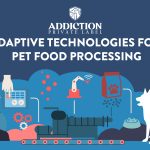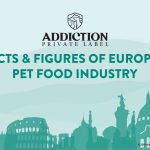As a trend, the search for new protein sources has gained a constant following in recent years.
This has compelled manufacturers to go to the ends of the Earth to find the next frontier for raw ingredients to satisfy the market’s insatiable quest for new protein sources.
Three sources have steadily risen to the occasion as manufacturers search for new frontiers and are driven by changing market connotations on traditional meats. These are plant-based proteins, insects, and novel meats.
Plant-based proteins
The Good Food Institute argues that plant-based meats offer more advantages compared to their traditional counterparts. For one, non-slaughtered meats do not contain bacterial pathogens and can have longer shelf-life. Likewise, such sources are not easily affected by unpredictable price or supply fluctuations since they are free from animal-related diseases.
Plant-based proteins have been in use for decades. Protein sources like soya, peas, lupin beans, and potatoes are common ingredients in present-day formulations, especially those designed for pets with hyperallergic reactions to meat-based proteins. Upcoming sources include pumpkin, mushrooms, sunflower seeds and microalgae.
Recent studies have indicated that pets can thrive on plant-based diets, as long as they are reasonably balanced and complete, raising hopes for the future roles of plant-based protein sources as an alternative for manufacturers to consider.
Insects
A key advantage to farming insect-based proteins is its sustainability. Insects considerably require lesser farming resources than traditional livestock and promote energy efficiency which leads to lessened eco-degradation and reduced carbon footprints. Since insects can consume organic waste products as well, this protein source may help address waste and contamination issues brought about by human consumption and production.
Studies have shown that insect-based protein diets could be an alternative for pets with sensitive digestive tracts, since they have lower risks for allergens, anti-nutritional factors and contaminants.
Although it is unclear how insect-based proteins can play a part in more sustainable sources for pet food, given the challenges it faces from both market and manufacturer perspectives, it is nonetheless an exciting possibility that manufacturers must keep a tab on.
Novel Meats
Novel meats refer to those protein sources that pets have yet to be exposed to. For manufacturers, this means exploring new meats that go beyond the usual formulations of beef, chicken, lamb and duck.
Because pets will eventually develop sensitives to any protein source once they have prolonged exposure to it, it is vital for manufacturers to look out for new meat sources given that a majority of the markets are still largely leaning towards meat-based pet food products.
That said, novel proteins anchor themselves to the insatiable consumer desire to try exciting new pet food options, particularly now that more retailers are highlighting the benefits of rotational feeding.
Sales have also been a driving force in the search for new novel meats, given that proteins such as salmon have been posting across pet channel sales of more than US$57 million as early as 2015. To date, popular novel meat sources include kangaroo, salmon, venison and brushtail possum, among others.
Market issues on new protein sources
In this era of evergreen consumption, manufacturers need to focus on what can set them above the rest: verifiable and responsible protein sourcing, cutting-edge innovation, and truly ‘green’ processing.
Here’s why you need a solid partnership for this.
As pet food markets pressure manufacturers to look for more protein sources, other issues come into play. For one, concerns over contamination and mislabeling have driven self-regulating and federal bodies to tighten their monitoring and to review their policies. The impact altogether impels the manufacturers to review their own sourcing processes.
Inevitably, manufacturers need to also understand that more than the amount of meat proteins in their formulation, where these proteins are sourced is just as important.
Likewise, more crude protein in the formulation does not fully guarantee a product’s overall quality and benefit for pets.
Therefore, a sound background on protein requirements for both cats and dogs, as well as a working knowledge on how proteins are digested and absorbed make for a better grasp of the pet food manufacturing industry.
Addiction Foods Private Label has literally gone to the ends of the Earth, just to ensure that partners can get the most out of their ventures: a wide range of responsibly-sourced raw ingredients to choose from; a world-class formulation support team to customize brands according to markets and consumers; and a high-standard quality assurance commitment to ensure product safety.
Discover how Addiction Foods can help you in your search for the next frontier of protein and other ingredient sources.
Ask us about starting a partnership.
Here’s how Addiction Foods can get you into new markets, like China.
Follow us on LinkedIn for more updates on private label manufacturing.











